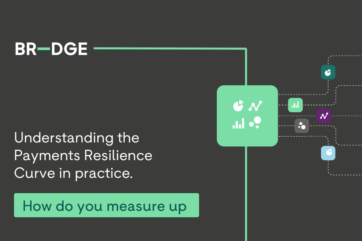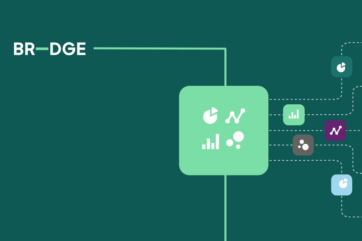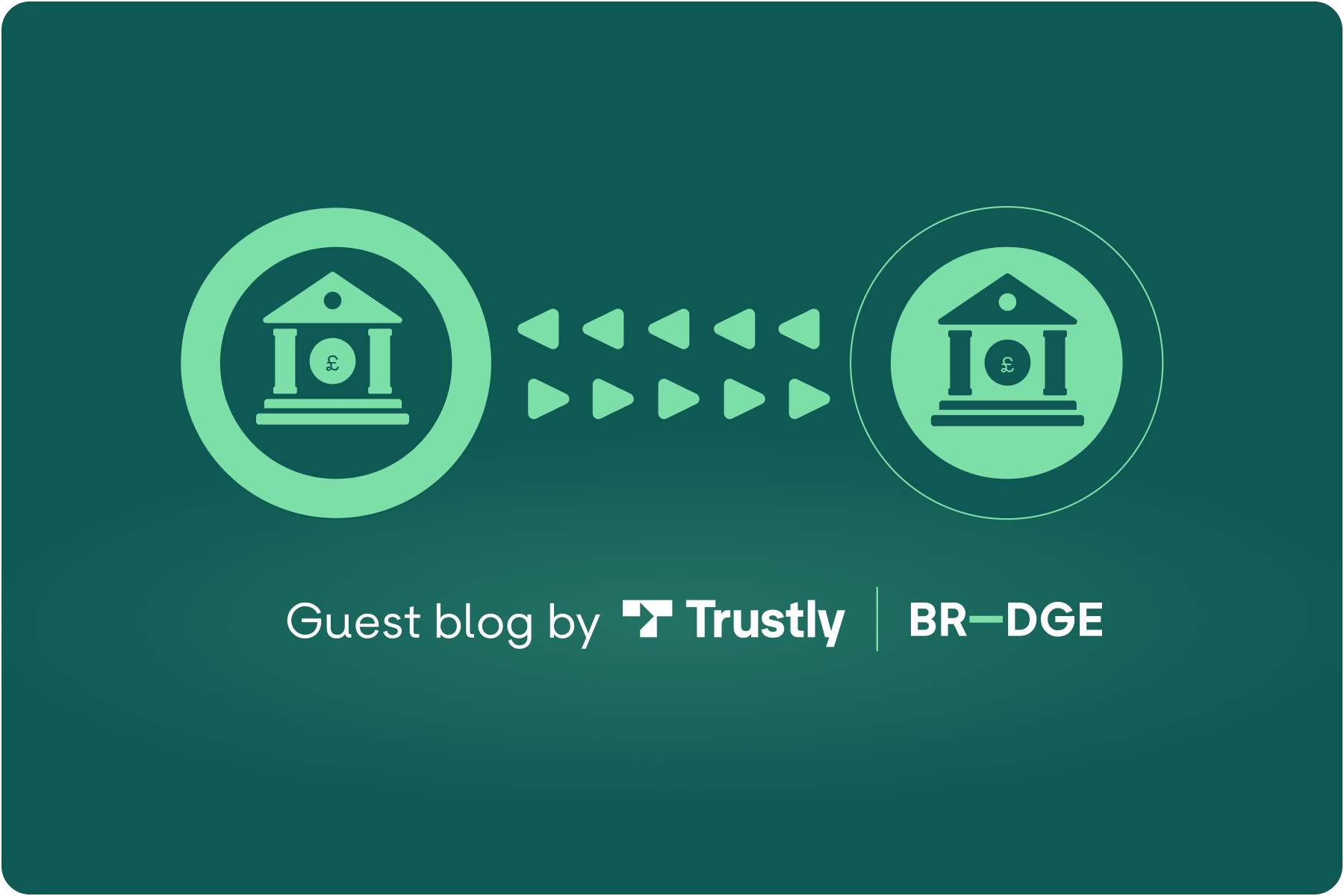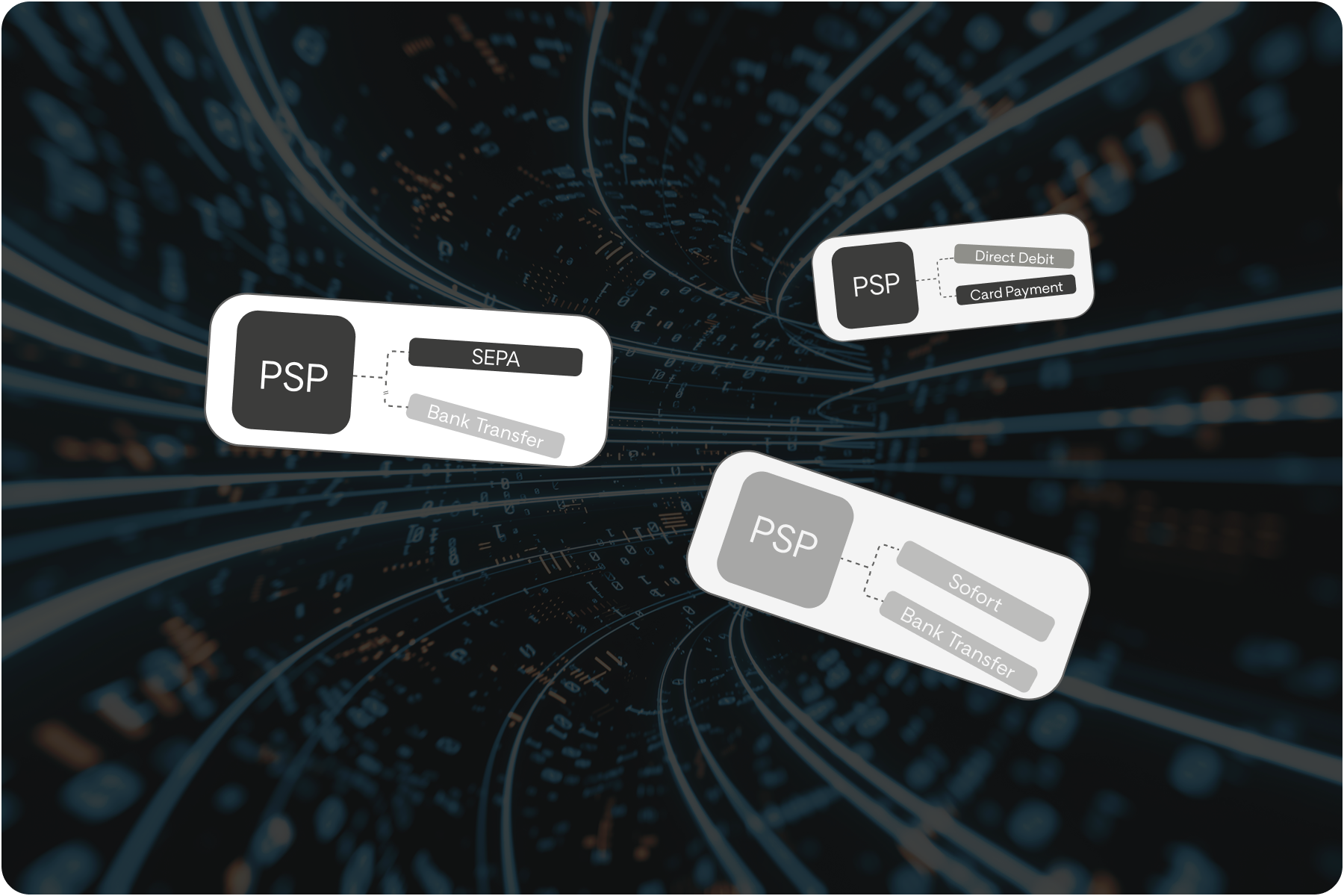
Payment Orchestration: Managing A Universe of Providers
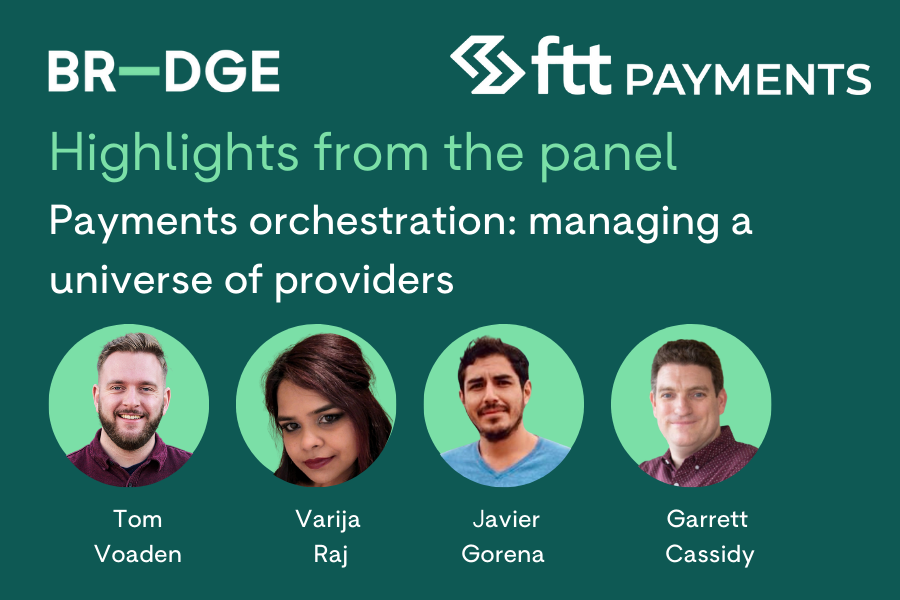
The BR-DGE team recently attended the FTT Payments event in London, bringing together the brightest innovators from the world of payments and technology.
A standout moment of the day, we took to the stage for an engaging panel session with industry leaders like Varija Raj (formerly of Livescore), Javier Gorena of Rentals United, and Garrett Cassidy, Director at Payments Consulting Network.
Our Head of Partnerships and Channel Sales, Tom Voaden, represented BR-DGE during the dynamic discussion titled ‘Payments Orchestration: Managing a Universe of Providers.’
Dive into the full recap and discover how payment orchestration is revolutionising e-commerce industries worldwide. This discussion explores defining payment orchestration from various angles, addressing the challenges it can solve, and the vast opportunities it offers.
Is payment orchestration just the latest buzzword?
In recent years, many organisations have adopted the term ‘payment orchestration.’ However, while they may offer some elements of orchestration, this does not necessarily mean they are true payment orchestrators.
“The key fundamental of being an orchestrator is you are an independent software layer,” comments Tom. “Payment orchestrators are those who service customers, whether they be an enterprise merchant or acquiring bank, and deliver for them exactly what the customer needs to achieve their unique objectives.”
To Javier of Rentals United, payment orchestration means optimising payment processes and their associated costs. “Large enterprises who want to process global payments need to have a complex and robust structure. With this in mind, the differences between regions become more of a roadblock for those looking to scale globally with these enterprises more susceptible to higher levels of risk such as fraud and increased chargebacks.”
Varija considers the definition in relation to global scalability. “It means meeting the customer where they are” she comments, whether this be by providing their preferred card or wallet solution and considering what is going on in their geography. For instance, payment orchestration helps gaming enterprises be where their customers are and provide alternative payment methods seamlessly and in a scalable way.”
What payment challenges can payment orchestration address?
“Payment orchestration supports merchants to balance the heavy load of payment processing,” says Javier of Rentals United. “As merchants grow their businesses they need to be able to handle larger volumes of transactions both consistently and successfully. An approach without orchestration means the payment process is fragmented and leading in several directions, without the ability to clearly oversee transactions in one place and monitor them in order to make better strategic payment decisions.”
It is the access to a variety of PSPs that merchants like Rentals United particularly savour. Where one PSP might offer features some customers want, another provides a convenient choice of payment methods to suit many others. Payment orchestration allows this to exist in one place, simplifying the process and ability to oversee payment operations.
For gaming merchants, Varija comments that the fraud tools of payment orchestration are hugely valuable to companies like LiveScore. According to Sumsub's most recent iGaming Fraud report, fraud in the iGaming industry increased by 64% from 2022 to 2024. With fraud a huge issue across the gaming landscape, payment orchestration provides fraud detection tools at both pre- and post-authorisation checkpoints, to more holistically tackle fraud.
Challenges around embracing payment orchestration
Displaying what many merchants may be afraid of, Javier raised concerns over mitigating the risks that come along with the ability to process more transactions. With the functionality of integrating more payment methods comes increased chance of prevalent industry-specific problems like chargebacks. These are challenges that orchestration can help to offset through centralised data and reporting, as well as integrating fraud and chargeback management tools.
Orchestrators face the challenge of helping merchants understand that while adopting a payment orchestration structure may seem complex initially, it ultimately simplifies and streamlines high volumes of payments in the long run.
“Payment orchestration should be seen as a retention and acquisition tool,” says Tom when addressing common concerns about integrating into an orchestration platform.
PSPs, whether they be modern providers or legacy tech providers, have concerns that payment orchestration may facilitate migration of volume away from them as well as threaten their existing business models. Where modern PSPs may have solutions such as tokenisation tied into their payment ecosystems, for an orchestrator it’s key to work closely alongside PSPs to showcase the potential of payment orchestration for the whole payment ecosystem.
Opportunities payment orchestration brings for merchants
Javier sees a kickstart to encouraging merchants to implement standardised processes as the biggest opportunity. With competition around the best orchestrators, best acquiring rates, and optimising costs, he feels companies will be more encouraged to better their own payments operations since there is now technology which can make these processes easier.
Varija touches on international expansion being much easier to achieve through orchestration. The technology can aid growth opportunities for merchants by connecting them to a vast amount of payment options localised and specific to what customers in each region truly want. Robust infrastructure is just as important - orchestration can provide this, leading to reduced points of failure in a payment stack. Routing is a particular standout here since it can move payment transactions from one PSP to another and thus reduce the risk of payment failure.
"Orchestration ultimately allows you to truly refine your payment strategy," Tom points out, concluding the panel discussion. “Orchestration tools empower businesses to test and learn, crafting dynamic payment journeys that cater to customers' diverse geographical and preference-based transaction habits.“
See Tom’s latest video interview with FTT Payments here.
Discover more insights across payments, partnerships, industry specific pieces and the latest on technology innovations on our blog homepage.
Related content


